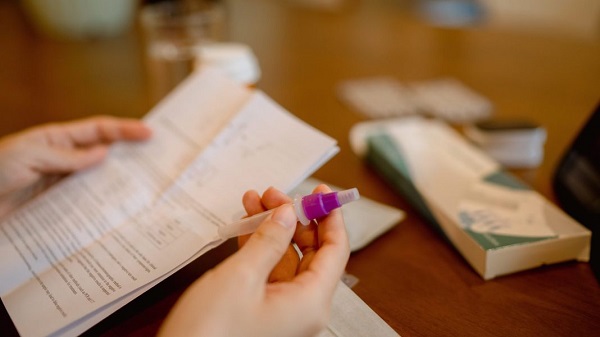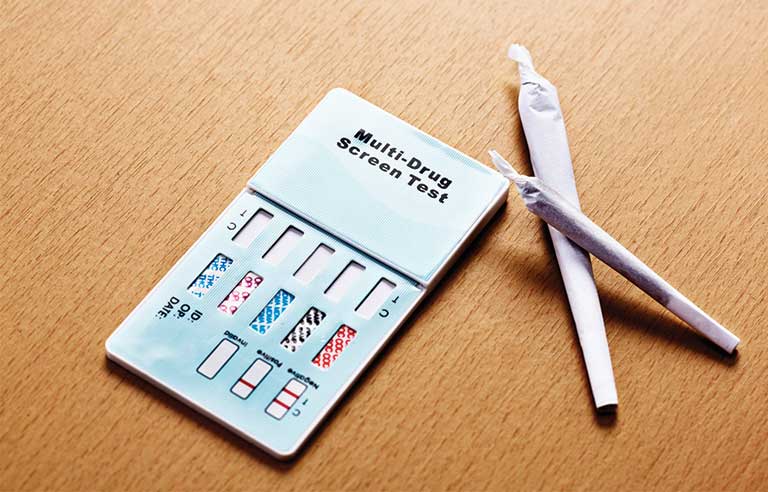Since the Covid-19 pandemic, home-test kits have increased in relevance and are now a vital tool for swiftly identifying persons with infections, preventing disease transmission, and protecting the wider population. There are several reasons to seek out a home testing solution, whether you want to prevent contact with a viral disease (such as COVID-19) or you have restricted mobility or capacity to leave your house. Every major medical testing provider is developing new home-test kits, which are increasing in both availability and accuracy. And now, the efficacy of making these kits available to the public has highlighted the potential of self-testing for infectious illnesses other than Covid-19, which is spreading throughout several countries.
Typical At-Home Tests Include:
- Pregnancy testing
- Glucose (blood sugar) tests, which may be done on a regular basis to help treat diabetes
- Fecal occult blood test for colon cancer screening
- Infectious disease screening tests, such as hepatitis, HIV, and COVID-19
- Genetic testing can determine if you are at a higher risk of a specific disease.
If you’re considering home testing, here’s some information on the many tests available and how they operate.
The Hepatitis C Virus
A home-test kit for the hepatitis C virus is available. The over-the-counter blood collection kit looks for viral antibodies. You may take a blood sample at home and ship it to a lab for testing with this home collection kit. It takes roughly a week to see the results. Each test includes a PIN, a lancet, a sample card, and a prepaid envelope for mailing the sample to the lab. To provide anonymous and discreet testing, you must first register your kit by contacting the toll-free number and inputting the kit’s PIN.
HIV
Millions of Americans are HIV-positive. Fear, inconvenience, and a lack of confidentiality are all barriers to testing. HIV testing can be done using saliva or blood. Both exams are completely anonymous.
The OraQuick In-Home test uses a saliva sample to screen for HIV-1 or HIV-2 antibodies. The test is quick, with results in less than 45 minutes. Anyone above the age of 17 can take the test. Keep in mind that antibody levels in the oral fluid may be lower than in the blood.
The majority of home-test kits require a sample of a body fluid, such as blood, urine, or saliva, to be put into the kit as indicated. Some tests give instant results, while others must be packaged and delivered to a laboratory. Many kits are accessible without a prescription, but you should still consult with your doctor about which kits to use.
Home-test kits can be used for a variety of purposes. The following are the most popular applications:
- Diagnosis- means determining the cause of a health condition after symptoms have begun. Home-test kits, for example, may detect infectious disorders such as COVID-19. It is crucial to remember, however, that only a doctor can properly diagnose a health issue, and more tests will be required to validate the results of at-home testing.
- Screening- looking for indicators of a health condition before symptoms occur. Home test kits, for example, may detect sexually transmitted diseases (STDs) that may not show symptoms, allowing you to avoid unknowingly spreading it to others.
- Monitoring- is the process of tracking how a person’s health changes over time or as a result of treatment. Monitoring includes home-test kits that allow persons with diabetes to check their blood sugar.
- Wellness optimization- Some tests are meant to help you understand one or more elements of your physical, mental, or emotional wellness rather than looking for a specific problem. These tests may assess hormone levels, nutritional levels, or other chemicals in order to provide additional information about your body. Many of these tests have not been validated to enhance health, therefore they must be scrutinized and used with caution.
- Ancestry research- Genetic testing can examine your DNA to discover family history information. This testing might shed light on your lineage or possibly reveal previously unknown family connections.
There are Three Primary Types Of At-Home Tests:
- Self-tests: This allows the entire process, such as a home pregnancy test, to be completed at home. A sample is taken at home, and the findings are given on-site. The test kit contains instructions for interpreting the results. In most circumstances, self-tests give findings in less than an hour.
- Self-collection tests involve collecting a sample at home and sending it to a laboratory for analysis. Once the lab has completed its analysis, the results are generally sent online.
- Tests ordered from home: Sample collection and analysis are performed at a laboratory for these tests, but a specially designed website simplifies scheduling and payment. This option can streamline the procedure and make testing easier by managing all of the pretest paperwork and logistics at home.
Self-tests and self-collection tests are often offered in the form of home-test kits meant to be self-administered, although, in rare situations, assistance from another person or a home health professional may be given. In most cases, home-test kits for children require testing to be performed by an adult.
Special home-test kit options may be provided for those who are homebound or have specialized medical needs through house nursing or home health care services. Patients who require these services should consult with their physician or a medical social worker.
Home testing is the new hidden weapon for modern healthcare, allowing the general public to take control of their health and overcome the limitations of traditional healthcare institutions. Many lessons may be learned from the quick and effective introduction of COVID-19 tests and used in other home testing applications, such as vitamin deficiencies, drugs, and STDs. In the last two years, the value of home-test kits has skyrocketed, and these things are now regarded as an essential part of the battle against an outbreak of infectious illnesses ranging from Covid-19 to monkeypox.
Securing Supplies Of Self-Test Kits

Being prepared for surges in infections is easier said than done, especially when there is high demand, and many organizations need support. Lab-away is dedicated to distributing a range of medicines, medical supplies, and equipment to ensure that patients, healthcare providers, clinical trial sponsors, and government agencies have access to the treatments and materials they need for health and wellness. Our tests provide exceptional accuracy and dependability while maintaining a level of privacy and safety. There will be no sample return. We firmly think that having access to inexpensive and reliable testing would immensely assist individuals in accurately assessing their health state and prompting them to seek care as soon as possible.


